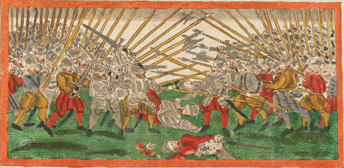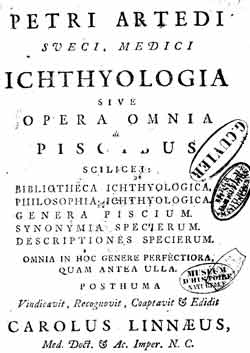|
1635 In Science
The year 1635 in science and technology involved some significant events. Botany * Jardin des Plantes, Paris, planted as a physic garden by Guy de La Brosse. Publication * Guillaume de Baillou's ''Opera medica omnia'', Paris. Births * May 9 – J. J. Becher, German physician and chemist (died 1682) * July 18 – Robert Hooke, English scientist and inventor (died 1703) * November 22 – Francis Willughby, English ornithologist and ichthyologist (died 1672) Deaths * September 16 – Metius, Dutch mathematician (born 1571) * October 22 – Wilhelm Schickard, German professor of Hebrew and Astronomy (born 1592) * John Mason, English explorer (born 1586 Events January – March * January 3 – Augustus of Wettin, the Elector of Saxony, marries Agnes Hedwig of Anhalt, the 12-year-old daughter of Joachim Ernest, Prince of Anhalt. Augustus dies less than six weeks later. * January ...) References {{Reflist, 80em 1635 17th century in science 1630s in sc ... [...More Info...] [...Related Items...] OR: [Wikipedia] [Google] [Baidu] |
Ornithologist
Ornithology, from Ancient Greek ὄρνις (''órnis''), meaning "bird", and -logy from λόγος (''lógos''), meaning "study", is a branch of zoology dedicated to the study of birds. Several aspects of ornithology differ from related disciplines, due partly to the high visibility and the aesthetic appeal of birds. It has also been an area with a large contribution made by amateurs in terms of time, resources, and financial support. Studies on birds have helped develop key concepts in biology including evolution, behaviour and ecology such as the definition of species, the process of speciation, instinct, learning, ecological niches, guilds, insular biogeography, phylogeography, and conservation. While early ornithology was principally concerned with descriptions and distributions of species, ornithologists today seek answers to very specific questions, often using birds as models to test hypotheses or predictions based on theories. Most modern biological theories apply ... [...More Info...] [...Related Items...] OR: [Wikipedia] [Google] [Baidu] |
1635
Events January–March * January 23 – 1635 Capture of Tortuga: The Spanish Navy captures the Caribbean island of Tortuga off of the coast of Haiti after a three-day battle against the English and French Navy. * January 25 – King Thalun moves the capital of Burma from Pegu to Ava. * February 22 – The ''Académie française'' in Paris is formally constituted, as the national academy for the preservation of the French language. * March 22 – The Peacock Throne of India's Mughal Empire is inaugurated in a ceremony in Delhi to support the seventh anniversary of Shah Jahan's accession to the throne as Emperor. * March 26 – Philipp Christoph von Sötern, the Archbishop-Elector of Trier, is taken prisoner in a surprise attack by Spanish Habsburg troops, leading to a declaration of war against Spain by France and the beginning of the Franco-Spanish War. April–June * April 13 – Druze warlord Fakhr-al-Din II is executed in ... [...More Info...] [...Related Items...] OR: [Wikipedia] [Google] [Baidu] |
1586 In Science
Events January – March * January 3 – Augustus of Wettin, the Elector of Saxony, marries Agnes Hedwig of Anhalt, the 12-year-old daughter of Joachim Ernest, Prince of Anhalt. Augustus dies less than six weeks later. * January 18 – The 7.9 magnitude Tenshō earthquake strikes the Chubu region of Japan, triggering a tsunami and causing at least 8,000 deaths. * February 11 **After a two-day battle, an English assault force led by Francis Drake captures the South American port of Cartagena de Indias, part of Spain's colony, the Viceroyalty of Peru (now Cartagena in Colombia. **In Dresden, Christian I becomes the new Elector of Saxony, after the death of his father Augustus. * February 14 – In India, Yakub Shah Chak becomes the new Sultan of Kashmir after the death of his father, the Sultan Yousuf Shah. * February 16 – In what is now Buner District, Pakistan, Kalu Khan leads his Yousafzai-Afghan Lashkar to defeat the Mughal Army at the Ka ... [...More Info...] [...Related Items...] OR: [Wikipedia] [Google] [Baidu] |
John Mason (governor)
Captain John Mason (1586–1635) was an English sailor and colonist who was instrumental to the establishment of various settlements in colonial America and is considered to be the 'Founder of New Hampshire'. Mason was born in 1586 at King's Lynn, Norfolk, and educated at Peterhouse, Cambridge. Early Career In 1610, he was appointed by James I to help reclaim the Hebrides for English-speaking rule, from Gaelic-speaking clan chiefs. He served as Captain of the expedition consisting of two ships of war and two pinnaces. As a reward, he was granted exclusive fishing rights in the North Sea. This was ignored by the Dutch and he was treated as a pirate by the Scots. In 1615, he was arrested, but soon released after the seizure of his ship. Newfoundland He was appointed the second Proprietary Governor of Newfoundland's Cuper's Cove colony in 1615, succeeding John Guy of Bristol, who had resigned. Mason arrived on the island in 1616 and explored much of the territory. He ... [...More Info...] [...Related Items...] OR: [Wikipedia] [Google] [Baidu] |
1592 In Science
The year 1592 in science and technology involved some significant events. Astronomy * November–December – Appearance of the Guest stars observed by Korean astronomers. Biology * Prospero Alpini publishes ''De Plantis Aegypti liber'' in Venice. Geography * August 9 – English explorer John Davis, commander of the ''Desire'', probably discovers the Falkland Islands. * An abridgement of Muhammad al-Idrisi's 12th-century geographical compilation is published as ''De geographia universali or Kitāb Nuzhat al-mushtāq fī dhikr al-amṣār wa-al-aqṭār wa-al-buldān wa-al-juzur wa-al-madā’ in wa-al-āfāq'' in Rome. Mathematics * March 14 – Ultimate 'Pi Day': the largest correspondence between calendar dates and significant digits of pi since the introduction of the Julian calendar. * Giovanni Antonio Magini publishes ''De Planis Triangulis'', describing use of the quadrant in surveying and astronomy, and . Physics * Galileo invents the thermometer. Technology ... [...More Info...] [...Related Items...] OR: [Wikipedia] [Google] [Baidu] |
Wilhelm Schickard
Wilhelm Schickard (22 April 1592 – 24 October 1635) was a German professor of Hebrew and astronomy who became famous in the second part of the 20th century after Franz Hammer, a biographer (along with Max Caspar) of Johannes Kepler, claimed that the drawings of a calculating clock, predating the public release of Pascal's calculator by twenty years, had been discovered in two unknown letters written by Schickard to Johannes Kepler in 1623 and 1624. Jean Marguin p. 48 (1994) Hammer asserted that because these letters had been lost for three hundred years, Blaise Pascal had been called and celebrated as the inventor of the mechanical calculator in error during all this time. After careful examination it was found that Schickard's drawings had been published at least once per century starting from 1718, that his machine was not complete and required additional wheels and springs Michael Williams, p.122 (1997) and that it was designed around a ''single tooth'' carry mechanism ... [...More Info...] [...Related Items...] OR: [Wikipedia] [Google] [Baidu] |
1571 In Science
The year 1571 in science and technology included a number of events, some of which are listed here. Mathematics * François Viète begins publication of ''Francisci Vietaei Universalium inspectionum ad Canonem mathematicum liber singularis'' containing many trigonometric tables and formulas on the sine and cosine, and novel in using a decimal notation; publication continued until 1579. Medicine * Peder Sørensen publishes ''Idea medicinæ philosophicæ'' in Basel, asserting the superiority of the ideas of Paracelsus to those of Galen. Technology * 1571 or 1572 – Jacques Besson publishes his popular comprehensive treatise on machines, ''Theatrum Instrumentorum''. * The first occurrence of the word ''theodolite'' is found in the surveying textbook ''A geometric practice named Pantometria'' by Leonard Digges, published posthumously by his son, Thomas. Births * December 9 – Metius, Dutch mathematician (died 1635) * December 27 – Johannes Kepler, German astronomer (died 16 ... [...More Info...] [...Related Items...] OR: [Wikipedia] [Google] [Baidu] |
Mathematician
A mathematician is someone who uses an extensive knowledge of mathematics in their work, typically to solve mathematical problems. Mathematicians are concerned with numbers, data, quantity, mathematical structure, structure, space, Mathematical model, models, and mathematics#Calculus and analysis, change. History One of the earliest known mathematicians was Thales of Miletus (); he has been hailed as the first true mathematician and the first known individual to whom a mathematical discovery has been attributed. He is credited with the first use of deductive reasoning applied to geometry, by deriving four corollaries to Thales's theorem. The number of known mathematicians grew when Pythagoras of Samos () established the Pythagorean school, whose doctrine it was that mathematics ruled the universe and whose motto was "All is number". It was the Pythagoreans who coined the term "mathematics", and with whom the study of mathematics for its own sake begins. The first woman math ... [...More Info...] [...Related Items...] OR: [Wikipedia] [Google] [Baidu] |
Metius
Adriaan Adriaanszoon, called Metius, (9 December 1571 – 6 September 1635), was a Dutch geometer and astronomer born in Alkmaar. The name "Metius" comes from the Dutch word ''meten'' ("measuring"), and therefore means something like "measurer" or "surveyor." Father and brother Adriaan Metius was born in Alkmaar, North Holland. His father, Adriaan Anthonisz, was a mathematician, land-surveyor, cartographer, and military engineer who from 1582 served also as burgomaster of Alkmaar. Metius' brother, Jacob Metius, worked as an instrument-maker and a specialist in grinding lenses. Also born in Alkmaar, Jacob died between 1624 and 1631. Little is known of him besides the fact that, in October 1608, the States General discussed his patent application for an optical telescope of his own invention described as a device for "seeing faraway things as though nearby", consisting of a convex and concave lens in a tube, and the combination magnified three or four times. Education Adriaan ... [...More Info...] [...Related Items...] OR: [Wikipedia] [Google] [Baidu] |
1672 In Science
The year 1672 in science and technology involved some significant events. Astronomy * February 6 – Isaac Newton submits his first paper on optics to the Royal Society of London. * December 23 – Giovanni Cassini discovers Rhea, a satellite of Saturn. * John Flamsteed determines the solar parallax from observations of Mars. Botany * Robert Morison publishes ''Plantarum Umbelliferarum Distributio Nova, per Tabulas Cognationis et Affinitatis, ex Libra Naturae observata et detecta'', the first monograph devoted to a specific group of plants, the ''Umbelliferae''. Mathematics * Georg Mohr publishes the Mohr–Mascheroni theorem, that any geometric construction that can be performed by a compass and straightedge can be performed by a compass alone. Medicine * Paul Barbette publishes ''Opera omnia medica et chirurgica''. * Richard Lower publishes ''De Catarrhis'', the first scholarly attempt by an English physician to take a classical doctrine (the theory that nasal catarrh ... [...More Info...] [...Related Items...] OR: [Wikipedia] [Google] [Baidu] |
Ichthyologist
Ichthyology is the branch of zoology devoted to the study of fish, including bony fish (Osteichthyes), cartilaginous fish (Chondrichthyes), and jawless fish (Agnatha). According to FishBase, 35,800 species of fish had been described as of March 2025, with approximately 250 new species described each year. Etymology The word is derived from the Ancient Greek words wikt:ἰχθύς, ἰχθύς, ''ikhthus'', meaning "fish"; and wikt:-λόγος, λόγος, ''logos'', meaning "study". History The study of fish dates from the Upper Paleolithic, Upper Paleolithic Revolution (with the advent of "high culture"). The science of ichthyology was developed in several interconnecting epochs, each with various significant advancements. The study of fish receives its origins from humans' desire to feed, clothe, and equip themselves with useful implements. According to Michael Barton (professor), Michael Barton, a prominent ichthyologist and professor at Centre College, "the earliest ichthy ... [...More Info...] [...Related Items...] OR: [Wikipedia] [Google] [Baidu] |






